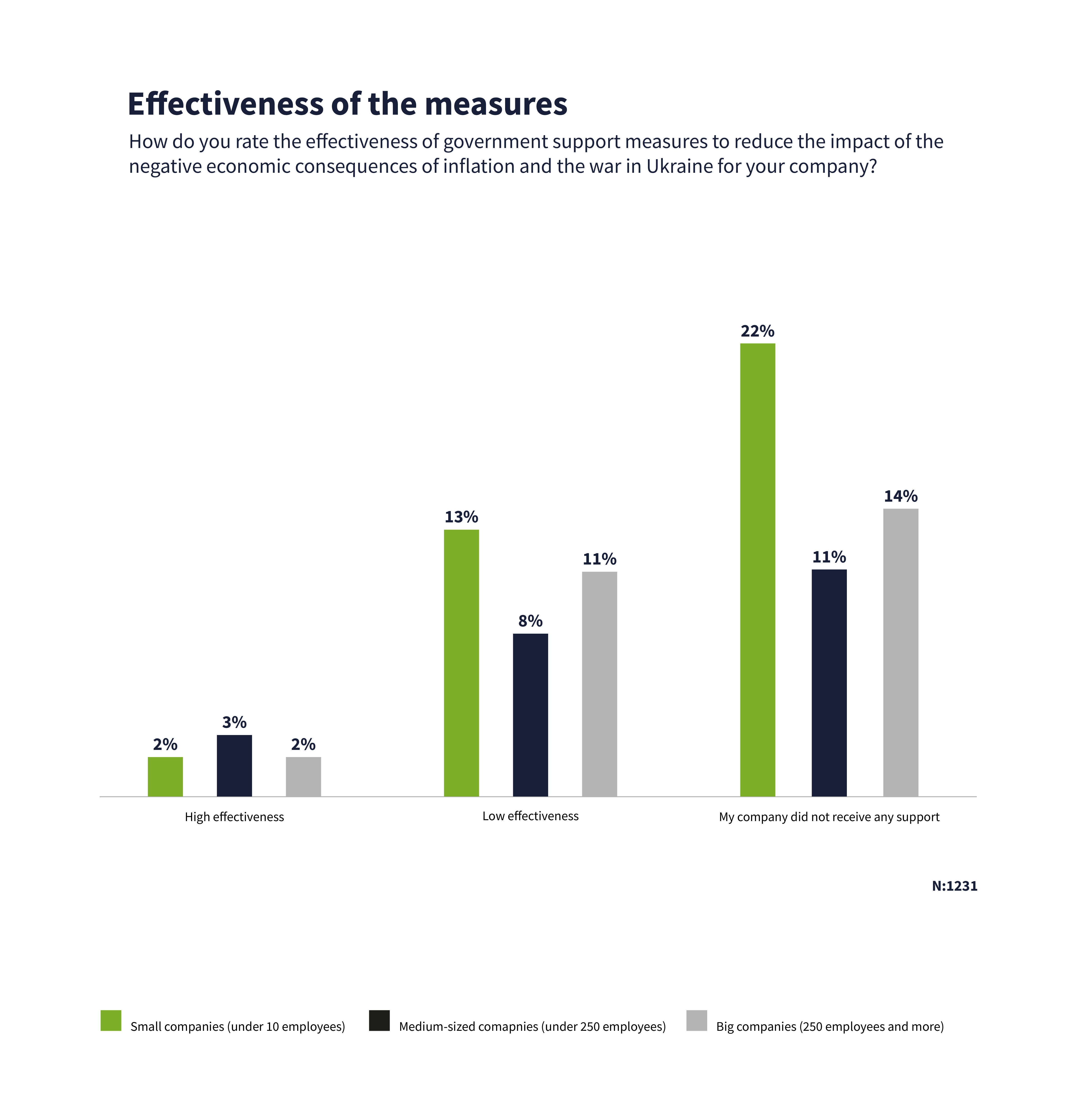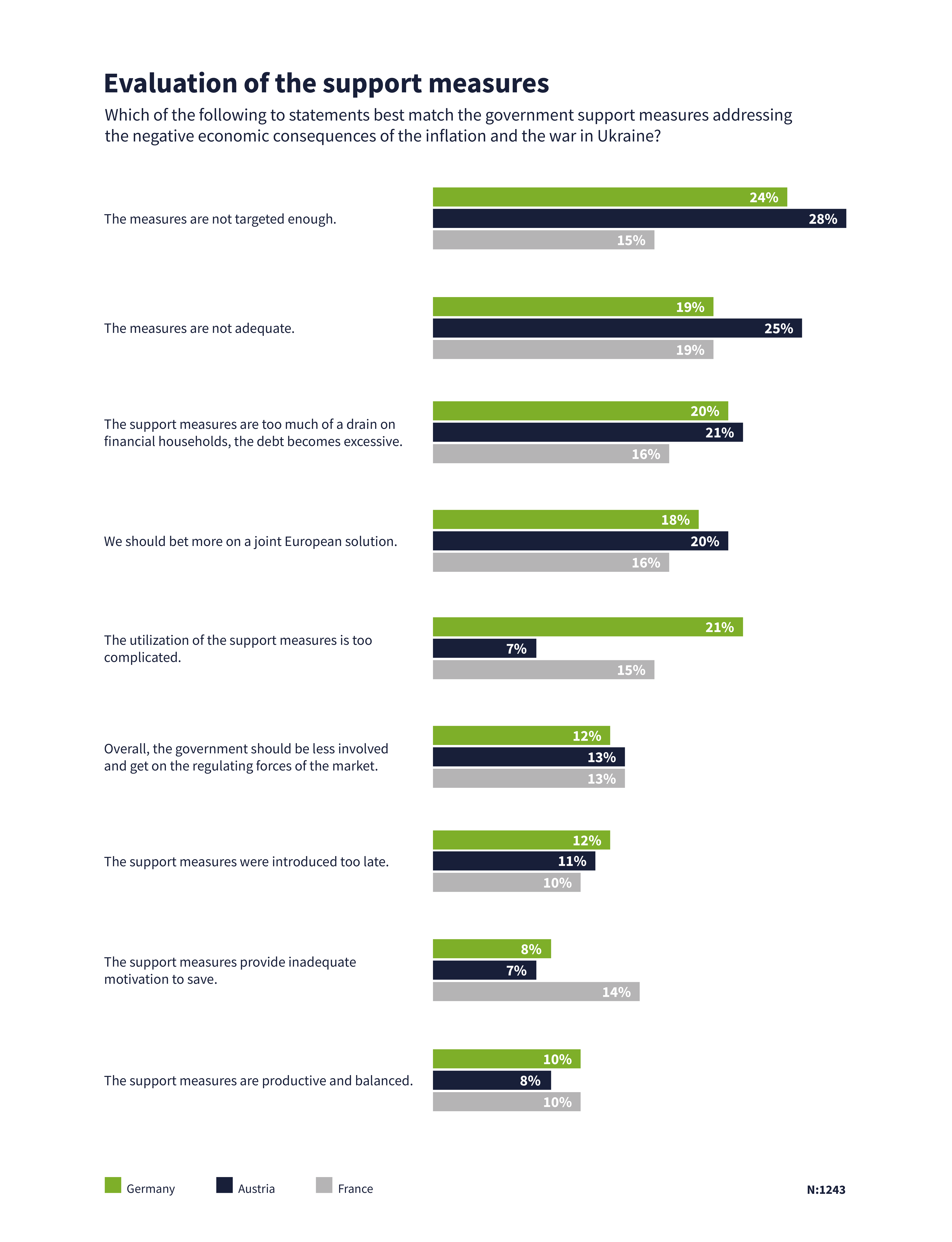· Small businesses in particular complain about the lack of aid or its lack of effectiveness
· Lack of targeting, bureaucratic hurdles as main points of criticism
Hamburg/Paris, 25 May 2023 - High inflation and sharp increases in energy prices as a result of the war in Ukraine are hitting small and medium-sized enterprises particularly hard. National and EU-wide aid measures are intended to cushion the negative economic effects. But how do European SMEs rate the effectiveness of electricity and gas price brakes, loans, guarantees and the like? The polling institute YouGov asked on behalf of the B2B platform operator Visable an the outcome is that there is a lot of room for improvement, according to the results. It also shows the weak points.
The operator of the two leading online B2B platforms in Europe, wlw and europages, wanted to know whether and how SMEs benefit from government aid measures. Only three percent of the 526 respondents in France attest the measures' high effectiveness, 10 percent rate them as effective and 23 percent consider them to be less effective. 14 percent of the interviewed ones state that thex didn’t receive any state aid to better deal with the consequenmces of the high inflation and the Ukraine war. Also the German and the Austrian collegues have been asked and evene if they are a bit more positve there is room to improve for all countries, Sandra Yönter, Vice President Marketing & Managing Director Visable International states: “If state aid is not available or is percieved as not effective by a high percentage of the companies the governments cannot be satisfied with these results. Government efforts should not just keep companies barely afloat, but empower them to regain competitiveness."

Small companies in particular miss out on the chalice
Small businesses with up to ten employees are particularly disappointed. Only a tiny 3 percent of them say that the government measures are effective. Twenty-one percent complain of low effectiveness, and a full 30 percent received no assistance at all. The bottom line is that half of the companies of this size are more or less without substantial support. Measures are more effective for medium-sized (up to 250 employees) and larger (more than 250 employees) companies. These were able to make use of assistance significantly more often and also rate the effectiveness significantly more often as high.
Wide-ranging criticism of the aid measures, one point stands out dramatically
Criticism of the content of government aid measures is wide-ranging. Seven of the eight critical statements in the survey receive approval ratings of 10 percent or more. Only 10 percent find the measures good and balanced. The most frequent criticism is a lack of targeting (24 percent). A total of 21 percent of the respondents find the utilisation too complicated. Small businesses in particular suffer from the bureaucratic hurdles (29 percent approval), which also explains why so many of them (at least so far) have not received any assistance measures.

Something else is striking: Especially in Austria, access to state measures seems to be very low-threshold. Despite the aid measures being rated the least effective in comparison to Germany and France, just seven percent of Austrian respondents agree with the statement that their utilisation is too complicated. In France, too, the statement finds significantly less agreement than in Germany, with only 15 per cent. "This is valuable and constructive feedback from small and medium-sized enterprises on which adjustments need to be made politically: SMEs are repeatedly hindered by bureaucracy," Yönter says. "For us at Visable, it is a central concern to stand by small and medium-sized enterprises as a partner and to support them in formulating their needs and demands."
About Visable
Visable supports industrial SMEs in making products and services internationally accessible to buyers. As a combination of its own B2B platforms and online marketing services, such as Google Ads and retargeting, tailored specifically to business customers, the company offers a broad digital portfolio for increasing reach on the internet.
The platforms operated by Visable GmbH include wlw ("Wer liefert was"), today the leading B2B platform in the D-A-CH region, and the European B2B platform europages, on which around 3 million companies are registered. Together, the platforms reach over 3 million B2B buyers a month who are looking for detailed company and product information. With its online marketing services, Visable offers companies additional opportunities to increase their reach on the Internet. Visable was created in response to the challenges of internationalisation and digitalisation in the B2B sector and today employs around 480 people at its locations in Hamburg, Berlin, Münster and Paris. As a joint umbrella for the wlw and europages brands, Visable is continuously expanding its B2B platforms and online marketing services.
You can download the graphics here and here.
